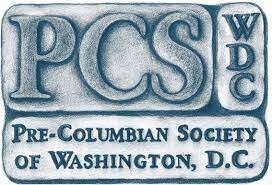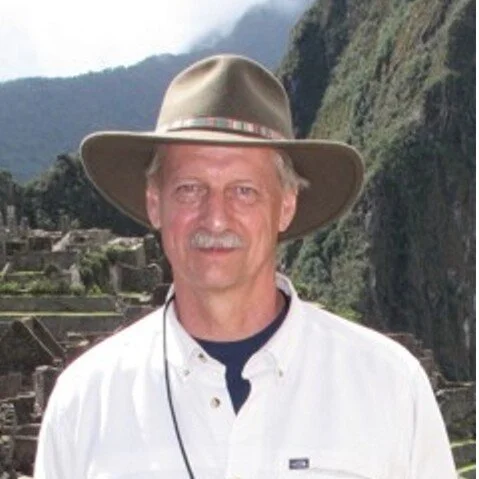Terence N. D’Altroy
Dr. D’Altroy is the Loubat Professor of American Archaeology in the Department of Anthropology and the founding Director of the Center for Archaeology at Columbia University in the City of New York, where he has been professor since 1982. He received his BA from the University of Michigan (1972), and his MA (1975) and PhD (1981) from the University of California, Los Angeles, all in Anthropology. In 2016, he received the Columbia University Lenfest Distinguished Faculty Award.
Dr. D’Altroy’s research interests lie in the comparative study of empires, especially the Inkas of Andean South America, with a focus on the organization and thinking underpinning their rule. Since 1969, he has conducted fieldwork in Peru, Argentina, the United States, and Mexico. He has written or (co-)edited several books, including The Incas (2015, 2d ed.), The Incas: Inside an American Empire (2004), Empire and Domestic Economy (2002), Empires (2002), and Provincial Power in the Inka Empire (1992), in addition to numerous scholarly papers.
Patrick Ryan Williams
Dr. Williams, curator at Chicago's Field Museum, has conducted archaeological field research in Southern Peru for thirty years. Williams has directed research on ancient agricultural hydraulics and climate change in the Peruvian Andes and has published on urbanism and the Tiwanaku state. He has led excavations for 25 years at the Wari administrative center of Cerro Baúl (A. D. 600 - 1000), a mesa-top citadel in Tiwanaku territory key to understanding Wari expansion. Funded by the National Science Foundation, the National Endowment for the Humanities, and National Geographic, the examination of political interaction is the primary theme of this research.
Dr. Williams is also interested in the regional analysis of settlement systems and uses geographic information systems and remote sensing applications to study the interaction between ancient peoples and their environments. His focus on regional exchange networks also incorporates geochemical analyses of artifacts for characterizing provenience, production, and distribution of archaeological materials. To this end, he and museum colleagues have acquired several sequential grants from the National Science Foundation over the past two decades to create and sustain the Elemental Analysis Facility at The Field Museum, of which he is the founding director.
Mary Glowacki
Dr. Glowacki is the Director of the Pre-Columbian Archaeological Research Group, Inc, a 501(c) (3) based in Florida. Until recently, she served as State Archaeologist and Chief of the Florida Bureau of Archaeological Research (BAR), overseeing programs that address archaeological site survey, inventory, interpretation, and management; artifact conservation and collections; and protection of unmarked human remains, relevant to terrestrial and sovereign submerged state lands. She has directed and continues to direct a number of grant-funded archaeological projects in Peru, where she focuses her research interests in the Wari provincial occupation of the region.
Susan Bergh
Dr. Bergh has served as curator of the Cleveland Museum of Art’s Pre-Columbian collection since 2000. At work on an exhibition concerning the Chimú Empire of Peru’s north coast, she also organized the show Wari: Lords of the Ancient Andes (2012). Her exhibition work has been supported by the Getty Foundation, the National Foundation for the Humanities, and the Ohio Humanities Council. Bergh began her curatorial career in New York, where she worked at the Brooklyn Museum and Metropolitan Museum of Art. She has also taught at Texas Christian University, Fort Worth and Case Western Reserve University, Cleveland.
Bill Sillar
Dr. Sillaris a senior lecturer at the Institute of Archaeology, University College London (UCL). After a PhD at Cambridge and teaching at the University of Wales, he has been at UCL since 1998. Bill first worked in Peru in 1982 on the Cusichaca project, and although he has also worked in England, Scotland, France and Italy, the Andes remains his primary regional focus. Ethnographic research has included comparative studies of pottery production, and its trade and use in Peru and Bolivia, as well as studies of building construction and household ritual practices. An archaeological project based around Raqchi, Dept. of Cuzco, Peru, investigated the impact of successive expansionist states (Wari, Inka and Spanish) in the development of the temple complex and modern village. More recently he has been studying changes in the organization of pottery production, stone-working and monumental architecture in the Cuzco region during the emergence of the Inka Empire.
Darryl Wilkinson
Dr. Wilkinson is an assistant professor at Dartmouth College, where he joined the faculty in early 2020. A specialist in Andean archaeology, he received his PhD in anthropology from Columbia University in 2013. Since then he has held a number of postdoctoral fellowships, including an Andrew W. Mellon Foundation fellowship at the University of Wisconsin-Madison and a Leverhulme Trust early career fellowship at the University of Cambridge. Wilkinson's research has been funded by the National Science Foundation and focuses on the cloud forests of the eastern Andes and Upper Amazonia during the late pre-colonial era.






